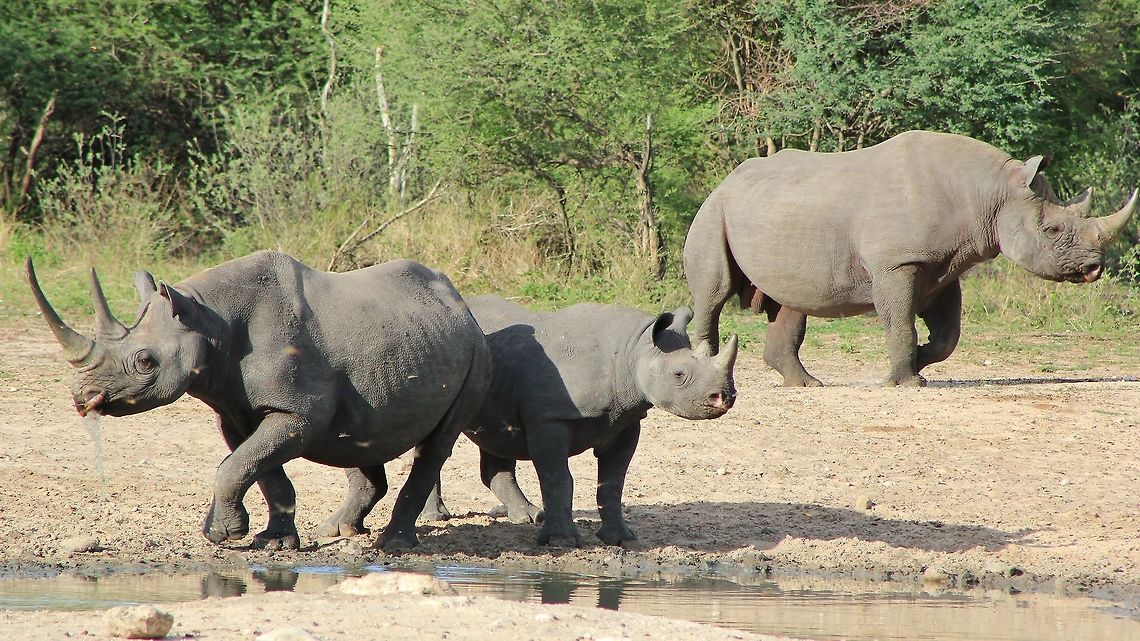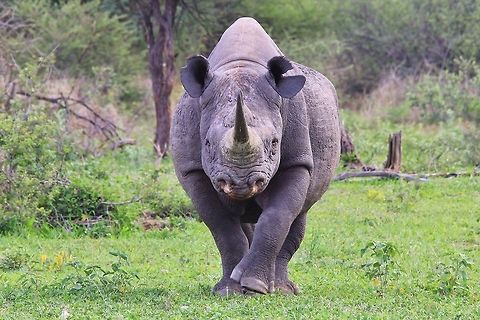 Promoted
Promoted
Black Rhino - In Honor of Greatness
This shot is rather rare. It shows a complete family. In the front, a gorgeous long-horned cow called "MK", with her 3 year old calf next to her. In the back, a bull.
It is with the greatest of regret and sorrow that I now announce the death of Mk due to poachers. The only way to honor her is through this picture.

The black rhinoceros or hook-lipped rhinoceros, is a species of rhinoceros, native to the eastern and central areas of Africa including Kenya, Tanzania, Cameroon, South Africa, Namibia, Zimbabwe, and Angola. Although the rhino was referred to as "black", it is actually more of a grey/brown/white color in appearance.

comments (7)
The syndicates are extremely wealthy and powerful. My heart is broken. Posted 10 years ago
It remains hard to hang on to that little hope though. As another sad example, in Tanzania there are so few rhinos left that they are permanently guarded. Poachers have largely given up on them (yet the problem of these rhinos unable to find a mate remains). In response to that, they have moved their focus to the Hippo. Available in great supply, easy to slaughter, and in this case they have made up that their teeth has value.
And these are only the iconic species. You don't hear much of species like the armadillo, who are slaughtered on an epic scale. Recently a boat was uncovered that held thousands of them, 10% of the total population, on a single boat. Again to make useless products from.
Wildlife crime is the 2nd criminal industry in this world, only after drugs. It appears it is a war with no single answer. It has to be fought in many ways: through education, donations, utilizing technology, all of it. A root cause that should not be overlooked is the great imbalance in wealth in this world. Poverty fuels a lot of this. Posted 10 years ago
And yes, the main driving force behind rhino poaching in specific, is the poverty levels and current value of rhino horn on the black market. Right now a horn can sell at US $ 150 000 per Kilogram, an average horn weighing in at 6 to 7 kg = US $ 1 Million / horn.
In the case of South Africa, Mozambique poachers come in their thousands. Poor as can be, dreaming of making some money. They are very well aware of the fact that they might be killed in the process, but the potential reward is just too great.
With an average monthly income of below US $ 80 per family, a horn can thus provide "life" for over many, many years.
In the end, all that will remain are photographs of these magnificent creatures. Posted 10 years ago